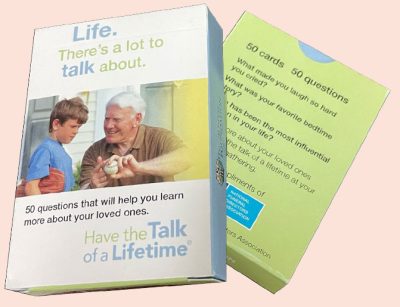When we think about funerals, we often focus on the somber aspects—the deep sadness, the overwhelming grief, and the finality of saying goodbye. However, funerals encompass much more than these initial thoughts, with many important elements often being misunderstood or completely overlooked.
In this post, we’ll delve into some lesser-known facts about funerals that might change the way you perceive them. In doing so, I hope to answer any lingering questions and alleviate concerns you may have about arranging services for a loved one or planning ahead for your own.
You’ll notice that I use the term ‘funeral’ broadly to include memorial services, visitations, celebrations of life, and similar types of gatherings. So, let’s get started and discover 5 things you didn’t know about funerals.
1. Funerals are for the living.

Did this statement leave you scratching your head? Yes, you did, in fact, read it correctly.
Funerals are often perceived as being for the deceased, but they are essentially for the living. While they most certainly honor and pay tribute to the departed, their fundamental purpose is to provide a path to healing for those left behind. Immediate family members, distant relatives, friends, and even acquaintances can benefit from attending a funeral because it can help them begin to gain a sense of closure.
As part of our human nature, we feel compelled to comfort and support those who have lost someone near and dear to their heart. Funerals provide the platform to do just that, creating a space for collective mourning and remembrance.
In today’s world, we have a tendency to shield ourselves from pain. This concept might make sense on the surface, but the reality is that the pain we feel following a loss is a critical part of the grief journey. Funerals enable us to take part in a structured ritual that helps us move through our grief in a healthy way.
2. Foregoing a funeral can result in unplanned grocery store visitations.

There is a phenomenon, if you will, known as a ‘grocery store visitation’. It may sound a little strange at first, but it’s quite common. I’ll take a moment to explain.
Some families opt not to hold services in memory of a loved one who has passed away. Their reasons vary, from not wanting to face the reality of death to preferring solitude.
While this choice is understandable, it has a significant drawback. Each time the bereaved ventures out to the grocery store and sees someone they know, an impromptu visitation takes place. Condolences will be extended, hugs are often exchanged, and tears may be shed.
If you live in a smaller community, these unintended visitations can happen multiple times in a single grocery trip. Such encounters may continue for months, extending to places of worship, restaurants, and social gatherings.
This is a big reason why I advocate for holding a visitation or memorial service. Family members and friends can then come together on a single day, at a set place and time, to offer consolation to the surviving family.
Although this process can be tiresome and emotional, it facilitates healthier grieving in the long-term. My husband, a funeral director of over 35 years, will be the first to tell you that families don’t regret having services; they often regret not having them.
3. Choosing cremation doesn’t mean there can’t be a funeral.

The impact of communal support after a loss became particularly apparent during the COVID-19 pandemic when regulations restricted funeral home gatherings and limited the number of guests.
Although families acknowledged the necessity for these measures, they longed to pay tribute to their loved ones in customary ways. Many who initially decided against holding services later recognized the need for closure and arranged memorial services at subsequent dates.
COVID significantly constrained, and in some cases, completely eliminated the option to have end-of-life services. Sadly, some families are under the misconception that choosing cremation limits their service choices, much like the pandemic did.
Similar to families who forewent services during the pandemic, many cremation families yearn for closure as time passes. They, too, decide to have memorial services weeks or months later.
4. Funerals don’t have to be religious.

Families who are not overly religious can still have a meaningful end-of-life-service to commemorate a loved one.
In fact, funeral homes often recommend local ministers who will memorialize the deceased in a more spiritual fashion, focusing on their life rather than on religious scripture. These services are tailored to the family’s values and carry a tone of hope and faith.
For those who are not religious or spiritual, the funeral director can arrange a secular ceremony. Many funeral homes even collaborate with celebrants who perform services that center entirely around the personality, interests, and accomplishments of the departed.
Another possibility is to ask a close friend or family member to conduct the funeral. If it will be an intimate gathering, a time of sharing and remembrance can be organized. This entails passing a microphone around the room, allowing guests to recount stories and special memories. This approach can be just as moving as a traditional ceremony.
5. Funerals aren’t expensive.

Please know that I understand not everyone will share my viewpoint, and I fully respect any differences in opinion. With that being said, I’d like to explain my thoughts on the cost of funerals.
Let’s begin by putting a few things in perspective. In 2022, the average wedding, including both the ceremony and reception, cost $30,000. A trip for two overseas will easily surpass $20,000. And the average starting price for a full-size vehicle is $54,520, with some makes and models exceeding $100,000. Furthermore, surgeries and medical procedures can cost hundreds of thousands of dollars.
Now, let’s consider the cost of a traditional funeral. It typically includes embalming, cosmetizing, a public visitation with a funeral with a casket, a burial vault, print materials, a memorial video, death certificates, obituary notices, flowers, honorariums, vehicle rentals, the use of the funeral home, and the guidance of a licensed funeral director.
In most parts of the country, the total costs range from $10,000 to $15,000. When compared to the costs of other major life events and purchases, this seems pretty reasonable to me.
I personally believe that a thoughtfully planned service is the greatest gift you can give a loved one. While the cost is definitely a consideration, the impact it has on the living is invaluable.
Parting Thoughts
Funerals are multifaceted events that range from simple to extravagant, embodying so much more than a final farewell. They serve as a powerful testament to the deceased, capturing the essence of their life story and offering solace to those left behind.
I’m certain that funerals will continue to evolve, meeting the changing needs and preferences of today’s families. This adaptability will not only allow for more flexibility in funeral practices but will also ensure that ceremonies are just as unique as the lives they celebrate.
The staff at Camino del Sol is always here to answer questions and address any concerns you may have. Whether you are seeking general information about our services or interested in pre-planning your own final wishes, our team is ready to assist you with compassion and understanding.




